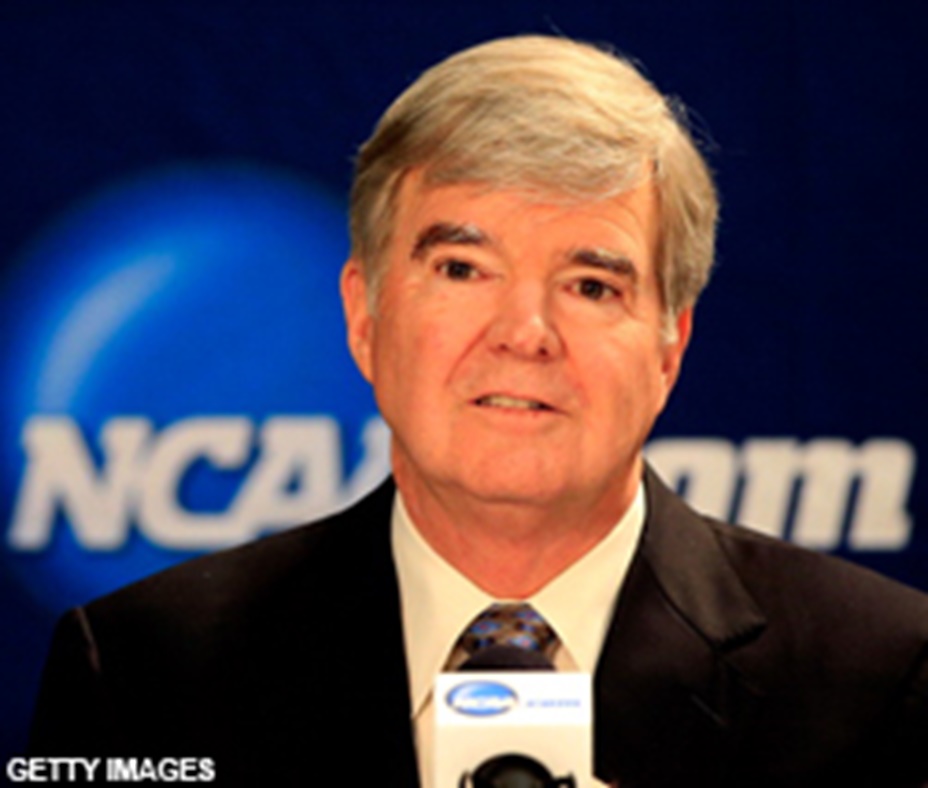NCAA President Mark Emmert discussed "the need for NCAA members to soon consider the implications of the [Ed O'Bannon] ruling; his belief that an NCAA court case will reach the Supreme Court; his concerns about a presidential commission in Congress; his willingness to allow college basketball players to return after turning pro; and some of his own failures four years into the job as NCAA president," among other topics, according to a Q&A with Jon Solomon of CBSSPORTS.com. Below are excerpts from the Q&A.
Q: Do you see the future of college sports being shaped by courts, by NCAA autonomy, by Congress, or by all of the above?
Emmert: I think there's going to clearly be a role for the autonomous five (conferences), but I think there's been some overstating of that. Those five conferences have autonomous support over a small part of the rulebook and the rest of it they're going to do in conjunction with all 32 D1 conferences. … Clearly the outcome of some of the legal cases has potentially a significant impact. We feel really, really good about our legal positions. While you're never looking forward to trials, they give you an opportunity to state your case.
Q: So you anticipate a case going to the Supreme Court and the NCAA is prepared for that?
Emmert: Absolutely. Some of the legal arguments being brought out by plaintiffs, there's just not a middle ground. It's not something you can settle out. It's not like a traditional case. It's a question of are these professional employees who can earn whatever they earn in an open market, or are they college athletes who play inside an association?
Q: The NCAA is appealing the O'Bannon ruling. But there is a federal judge's injunction out there saying she believes schools should be allowed to pay football and men's basketball players deferred compensation for use of their names, images and likenesses. The reality is that at some point soon this could be happening to college sports. What is the NCAA doing to prepare for that possible new world?
Emmert: Her injunction would go into effect in August 2015, so it's fast approaching. That's probably going to be the single biggest topic of conversation among university leaders and athletic directors in the coming months as we get this new governance model in place. Because right now, it's not clear what the implications of that would be and what rules could or couldn't be in place. It's a very ambiguous place right now.
Q: Assuming the O'Bannon injunction happens, what do you think that new world looks like in August 2015?
Emmert: I don't know. I think if we don't have agreement on a rule then you could ostensibly have -- and I think this is the argument in one of the other lawsuits -- a school paying anybody whatever they want. I don't know anybody inside college sports who works in higher education who thinks that's a good idea. The reality is we don't know what that looks like.
Q: How much longer do you want to remain president?
Emmert: It's been a challenging four years, to say the least. But I think there hasn't been enough recognition, not of what I've done, but what the members have done over that four-year period. We had ridiculous rules around food because of concerns about competitive fairness. Now we say just feed kids, stop worrying about it. We had a rule that says not only shouldn't you give multiyear scholarships, you can't give multiyear scholarships. We now have conferences saying if you don't give multiyear scholarships, you can't be a member of this conference. We had a board pass a miscellaneous expense allowance to move to full cost of attendance that was blown out of the water by the membership, and in January we're going to have a bunch of conferences say you must do this (CBSSPORTS.com, 12/9).




